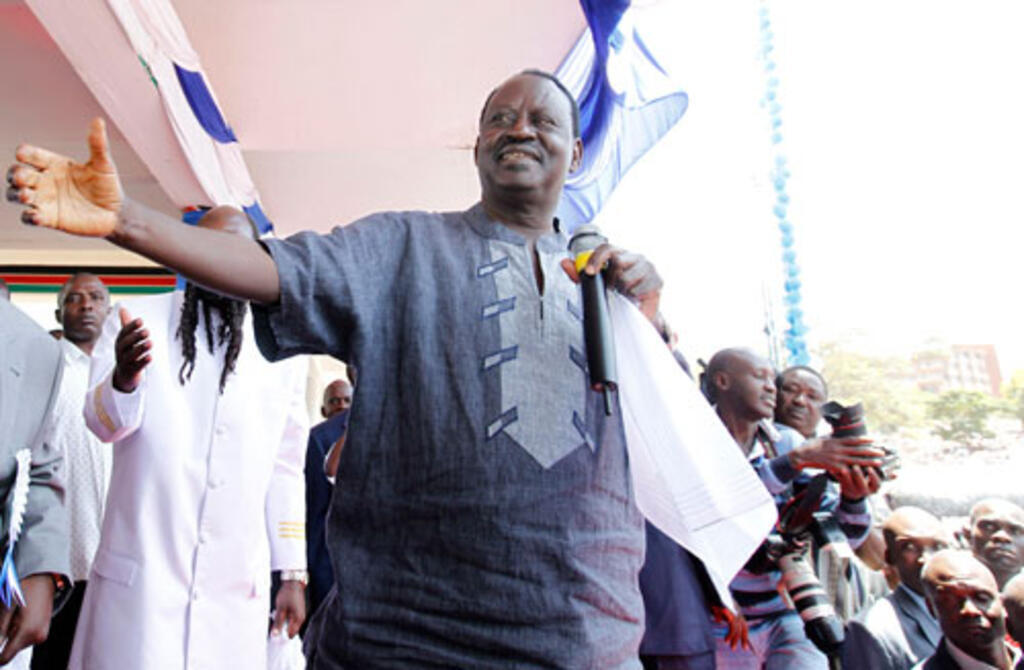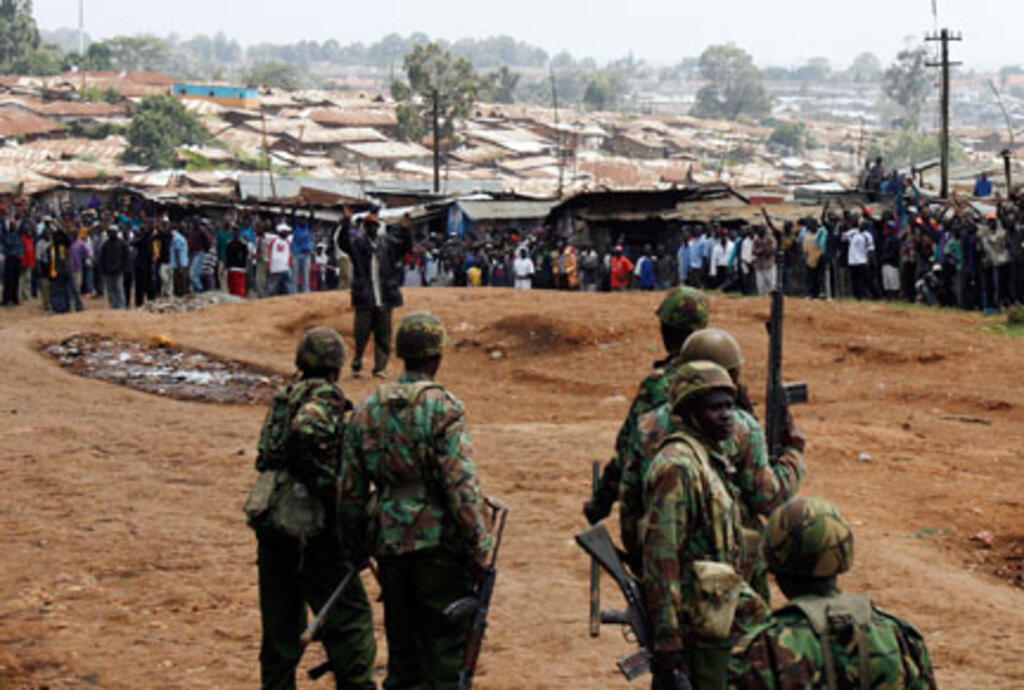
Kenya’s former prime minister and veteran opposition leader, Raila Odinga, has died following a decades-long career that defined the country’s struggle for democracy.
Raila Odinga, one of the defining figures of modern Kenyan politics, has died at the age of 80 while travelling in India.
He will be remembered as a tireless campaigner whose charisma, flair and stubborn idealism helped steer the country from one-party rule to multi-party democracy.
In his home town of Kisumu, where Odinga was a household name, his death turned the lakeside streets silent on Wednesday.
“People woke up to the sad news that their political father had died in India,” according to RFI Kiswahili’s Victor Abuso. “They’re saying Raila Odinga has left them as orphans. They don’t know who to turn to.”
Shops were shuttered and mourners gathered in tears, chanting his name in disbelief.
Though he never achieved his life’s ambition of becoming president, Odinga’s imprint on Kenya’s political story was unmistakable. To his supporters, he was “Baba” – father of the nation’s democratic spirit – a man who continued to fight, even after five failed presidential runs.
Odinga died after suffering a cardiac arrest during a morning walk in Kerala, southern India, according to Devamatha Hospital.
He had recently signed a surprise political pact with President William Ruto, bringing his opposition party into government policymaking after years of rivalry – a final act of pragmatism from a man whose career was defined by both confrontation and reconciliation.

Kenya presidential hopeful Odinga vows court challenge after polls defeat
From prisoner to reformer
Born on 7 January 1945 in Kisumu, on the shores of Lake Victoria, Raila Amolo Odinga was the son of Jaramogi Oginga Odinga, Kenya’s first vice-president and an early ally-turned-critic of Jomo Kenyatta.
Educated in East Germany as an engineer, Raila returned to Kenya in the 1970s to teach at the University of Nairobi and run a small business manufacturing gas cylinders.
His rise to prominence, however, was marked by struggle. Under Daniel arap Moi’s regime, Odinga was accused of participating in the failed 1982 coup attempt.
He denied the charge, but spent much of the next decade in detention, enduring torture and isolation.
“I was beaten with a table leg,” he later recalled, describing those years as both brutal and formative. He emerged from prison convinced that Kenya could only survive through pluralism and reform.
By the 1990s, as multiparty politics took root, Odinga had become the voice of a new generation. Winning a Nairobi parliamentary seat in 1992, he built a following among Kenyans frustrated by corruption and inequality.
His political base in the Luo-dominated west of the country gave him considerable strength, but he often succeeded in reaching beyond it, forging coalitions with leaders from rival ethnic groups
Raila Odinga post-election RFI interview 2007
Defeated Odinga files challenge against Kenya election result
The 2007 election crisis
His defining moment arrived during the 2007 presidential election. After years of grassroots mobilisation, Odinga appeared on the brink of unseating the incumbent, Mwai Kibaki.
Crowds thronged his rallies, and even experienced observers believed his time had come. But when the Electoral Commission announced Kibaki as the winner by a narrow margin, allegations of vote-rigging plunged Kenya into chaos.
Speaking to Radio France International in Nairobi the following day, Odinga as defiant.
“If these results are allowed to stand,” he warned, “Kenyans will ask, why is it necessary for us to go to the ballot if, at the end of the day, decisions are made by a few clerks? That is the end of democracy.”
Yet even amid anger and bloodshed, he insisted on non-violence. “We have urged our supporters to conduct themselves with restraint and to desist from any acts of hooliganism,” he told RFI. “We are going to carry out mass action which is peaceful.”
The ensuing violence claimed more than a thousand lives and ripped through Kenya’s fragile social fabric. “No Raila, no peace” became the rallying cry of opposition supporters.
Though Odinga was never accused of inciting unrest, two future presidents – Uhuru Kenyatta and William Ruto – faced charges at the International Criminal Court, which were later dropped.
The crisis ended with Odinga taking the post of prime minister in a power-sharing deal brokered by former UN Secretary General Kofi Annan.

Kibera Post Election Protests 2007
The pursuit of democracy
Over the next decade, Odinga and his Orange Democratic Movement remained a dominant presence in Kenyan politics, leading protests against corruption, championing constitutional reform and rallying the opposition.
He ran for president again in 2013, 2017 and 2022, each time claiming electoral manipulation.
As RFI's Victor Abuso noted, “It’s very sad that Odinga has died not being president of Kenya. He tried for it five times, four times close to power, but he never reached what he really wanted.”
For many in his home region, his defeat after decades of effort remains a wound that has never fully healed.
Even his critics recognised his resilience. Age never appeared to diminish his appetite for the struggle. And while he could at times seem tired on the campaign trail, his rhetoric – part preacher, part professor – retained the magnetism that had elevated him to national prominence.
Odinga’s last major campaign was not for State House but for continental office – a failed bid in early 2025 to become chair of the African Union Commission.
Presidential candidate Ruto claims government is attempting to 'sabotage' his rallies
As Kenya awaits official funeral arrangements, there is a growing demands among his supporters for Odinga to be accorded the nation’s highest honours.
“His supporters are expecting that he will be granted a state funeral and a period of national mourning,” Abuso says, reflecting the views of many who regard him as a statesman who rose above party politics.
As Odinga himself said in 2007: “This time, things are different. Kenyans have moved on. They are not Kenyans of the 60s and 70s. These are now Kenyans who are enlightened, who know their democratic right.”
In the end, it was his enduring faith in ordinary Kenyans that secured Raila Odinga’s place among Africa’s most influential political figures.
Odinga is survived by his wife, Ida.







